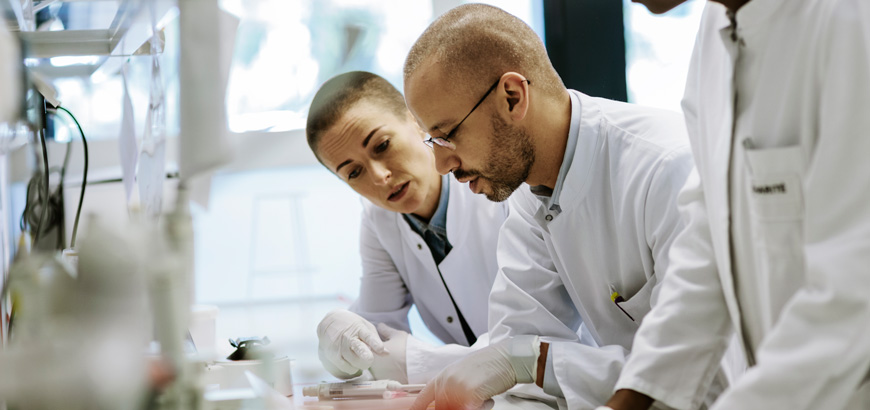Read Time: 3.5 minutes
Today, one in two men and one in three women will be diagnosed with cancer during their lifetime. Although it’s a devastating disease that touches the lives of countless individuals and families, the medical community has made remarkable strides in cancer treatments due to advances being made in clinical research. Before a therapy is approved, they are first made available to patients through clinical trials, which have often been offered primarily at larger academic medical centers in major cities.
However, with 85% of people seeking cancer care in the community where they live, it’s important that every person facing cancer has access to the most advanced therapies through clinical trials without having to travel far from home.
Leading the way is Sarah Cannon Research Institute (SCRI), a global leader in oncology research that provides cutting-edge cancer research and care through the community-based clinical trials it offers to hundreds of thousands of patients.
Founded in 1993, SCRI has managed more than 750 first-in-human clinical trials, and its contributions to research have helped advance the majority of new cancer therapies approved by the U.S. Food and Drug Administration.
“At SCRI, we understand that access to clinical trials is absolutely vital in changing the trajectory of a patient’s cancer journey,” says Dee Anna Smith, chief executive officer, SCRI. “We know that today’s clinical trials are tomorrow’s therapies.”
An Unrivaled Partnership and Pillar of Oncology Care
There are many types of clinical trials, but the goal of research is the same – to improve the treatment of cancer. Some clinical trials involve new therapies, while others look at existing approved therapies, or a combination of therapies, to treat different types of cancer. Clinical trials not only help patients with cancer today, but also people who will face cancer in the future.
Traditionally, clinical trials have primarily been available in major academic medical centers or large health systems. While some patients have access to large institutions, community-based care is essential to expanding access to clinical trials for those in more rural or diverse areas and encompassing a broader representation in those trials.
To help ensure that world-class cancer care is accessible to everyone and that clinical trials represent the broader patient population, SCRI partners with The US Oncology Network (The Network), which is supported by McKesson and is the nation’s largest network of physicians dedicated to advancing high-quality cancer care.
SCRI’s passionate physicians are uniquely positioned to provide the latest treatments and compassionate care in the communities it serves.
Precision Medicine: Tailored Treatments, Transformed Outcomes
And since no two cancer diagnoses or patients are the same, personalized medicine is vital.
Tailored clinical trials help answer questions such as why one individual’s cancer may be different than the cancers that appear in other people, and how physicians can target that particular type of cancer to get the best response and outcome for that individual.
In partnership with Genospace, a McKesson precision medicine company, SCRI can help revolutionize precision medicine through real-word data that helps inform treatment plans and transform the standard of care for its patients. For example, by understanding tumors at the genetic level, SCRI is assisting the development of individualized therapies for patients to help ensure that the right patient is being offered the right therapy at the right time.
“At SCRI, we work tirelessly to accelerate development and provide access to novel therapies for everyone fighting cancer,” Smith says. “Patients deserve the safest and most effective treatments closer to where they work and live, where they are supported by their friends and family. It is an exciting time in our field, and I am honored to be part of a team at the forefront of advancing cancer care through cutting-edge clinical research in communities across the U.S.”




Share
Post
Post
Email